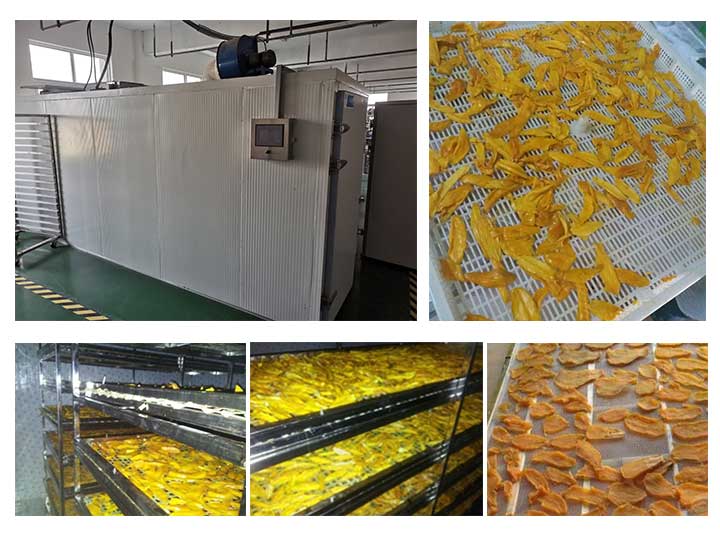
Content Menu
● Introduction to Fruit and Vegetable Drying Technology
● The Importance of Dryer Machines in Food Processing
>> Types of Dryer Machines for Fruit and Vegetable Processing
● The Drying Process: From Fresh Produce to Dried Goods
>> 1. Preparation
>> 2. Loading
>> 3. Drying
>> 4. Cooling and Packaging
● Advancements in Dryer Machine Technology
>> Energy-Efficient Systems
>> Precision Control
>> Artificial Intelligence Integration
● Benefits of Industrial Fruit and Vegetable Drying
>> Extended Shelf Life
>> Reduced Food Waste
>> Nutritional Retention
>> Year-Round Availability
● Applications of Dried Fruits and Vegetables
>> Food Industry
>> Nutraceuticals
>> Cosmetics
>> Pet Food
● Challenges in Industrial Fruit and Vegetable Drying
>> Energy Consumption
>> Product Quality Consistency
>> Initial Investment
>> Regulatory Compliance
● Future Trends in Fruit and Vegetable Drying Technology
>> Smart Factory Integration
>> Sustainable Practices
>> Novel Drying Techniques
>> Customization and Flexibility
● Conclusion
● Frequently Asked Questions
>> 1. What are the main advantages of using industrial dryer machines for fruit and vegetable processing?
>> 2. How do modern dryer machines ensure consistent quality in dried fruits and vegetables?
>> 3. What types of dryer machines are commonly used in fruit drying vegetable factories?
>> 4. How has energy efficiency improved in modern fruit and vegetable dryer machines?
>> 5. What are some emerging trends in fruit and vegetable drying technology?
Introduction to Fruit and Vegetable Drying Technology
In the ever-evolving world of food processing and preservation, industrial fruit and vegetable drying has emerged as a crucial technology. The use of advanced dryer machines in fruit drying vegetable factories has revolutionized the way we preserve and process agricultural products. These sophisticated machines are designed to efficiently remove moisture from fruits and vegetables, extending their shelf life while maintaining nutritional value and flavor.
The Importance of Dryer Machines in Food Processing
Dryer machines play a pivotal role in modern food processing facilities. These machines are essential for creating dried fruits and vegetables that can be stored for extended periods without spoilage. The drying process not only preserves the food but also concentrates flavors, making dried products a popular choice for snacks, ingredients in prepared foods, and as standalone products.
Types of Dryer Machines for Fruit and Vegetable Processing
There are several types of dryer machines used in fruit drying vegetable factories, each suited for different products and production scales:
1. Conveyor Belt Dryers: These are ideal for continuous production and can handle large volumes of fruits and vegetables.
2. Cabinet Dryers: Perfect for smaller batches and more delicate produce.
3. Freeze Dryers: Used for high-value products where maintaining structure and nutritional content is crucial.
4. Spray Dryers: Commonly used for creating fruit and vegetable powders.
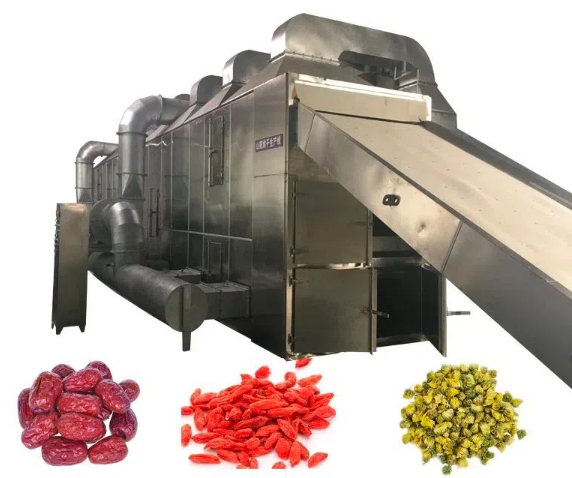
The Drying Process: From Fresh Produce to Dried Goods
The journey from fresh fruits and vegetables to dried products involves several key steps:
1. Preparation
Before entering the dryer machine, fruits and vegetables are washed, sorted, and often sliced or diced to ensure even drying.
2. Loading
The prepared produce is then loaded onto trays or conveyor belts, depending on the type of dryer machine being used.
3. Drying
The actual drying process involves carefully controlled heat and air circulation. Modern dryer machines use sophisticated sensors to monitor and adjust temperature and humidity levels throughout the process.
4. Cooling and Packaging
Once dried, the products are cooled and then packaged to maintain their quality and extend shelf life.
Advancements in Dryer Machine Technology
The fruit and vegetable drying industry has seen significant technological advancements in recent years. These innovations have led to more efficient and effective drying processes:
Energy-Efficient Systems
Modern dryer machines are designed with energy efficiency in mind. Heat recovery systems and improved insulation help reduce energy consumption, making the drying process more cost-effective and environmentally friendly.
Precision Control
Advanced control systems allow for precise management of temperature, humidity, and airflow. This level of control ensures consistent quality across batches and enables customization for different types of produce.
Artificial Intelligence Integration
Some cutting-edge dryer machines now incorporate artificial intelligence to optimize the drying process. These systems can learn from previous batches and adjust parameters automatically to achieve the best results.
Benefits of Industrial Fruit and Vegetable Drying
The use of advanced dryer machines in fruit drying vegetable factories offers numerous benefits:
Extended Shelf Life
By removing moisture, dried fruits and vegetables can be stored for months or even years without spoilage.
Reduced Food Waste
Drying allows for the preservation of surplus produce that might otherwise go to waste during peak harvest seasons.
Nutritional Retention
Flavor Concentration
The drying process concentrates flavors, often resulting in more intense and enjoyable taste experiences.
Year-Round Availability
Dried fruits and vegetables can be enjoyed year-round, regardless of seasonal availability of fresh produce.
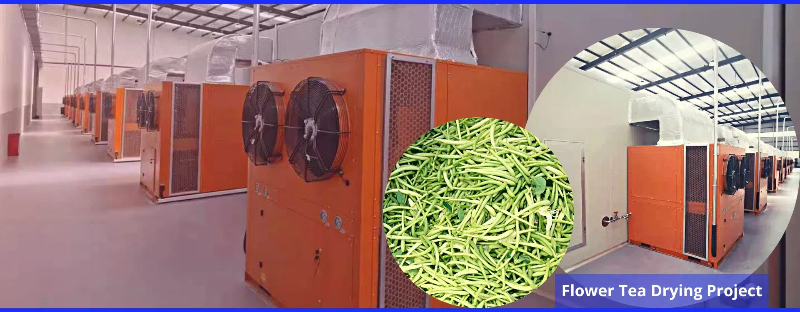
Applications of Dried Fruits and Vegetables
The products of fruit drying vegetable factories find applications in various industries:
Food Industry
Dried fruits and vegetables are used in snack foods, baked goods, cereals, and as ingredients in various prepared meals.
Nutraceuticals
Many dried fruits and vegetables are used in the production of health supplements and functional foods.
Cosmetics
Some dried fruit and vegetable extracts are used in natural cosmetics and skincare products.
Pet Food
Dried vegetables are often incorporated into premium pet foods for added nutrition.
Challenges in Industrial Fruit and Vegetable Drying
While the technology has advanced significantly, there are still challenges faced by fruit drying vegetable factories:
Energy Consumption
Despite improvements in efficiency, the drying process can still be energy-intensive, especially for large-scale operations.
Product Quality Consistency
Maintaining consistent quality across different batches and types of produce can be challenging.
Initial Investment
High-quality dryer machines represent a significant capital investment for many businesses.
Regulatory Compliance
Meeting food safety regulations and quality standards requires careful monitoring and control of the drying process.
Future Trends in Fruit and Vegetable Drying Technology
The fruit and vegetable drying industry continues to evolve, with several exciting trends on the horizon:
Smart Factory Integration
The integration of dryer machines into smart factory systems promises to further optimize production and quality control.
Sustainable Practices
There is a growing focus on developing more sustainable drying practices, including the use of renewable energy sources and water recycling systems.
Novel Drying Techniques
Research into new drying methods, such as microwave-vacuum drying and ultrasound-assisted drying, may lead to even more efficient and effective processes.
Customization and Flexibility
Future dryer machines are likely to offer greater flexibility, allowing for easy customization to handle a wider variety of fruits and vegetables.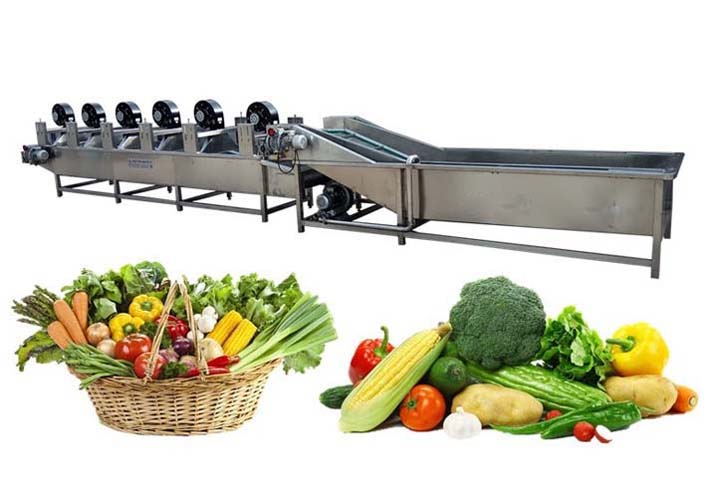
Conclusion
The advancement of dryer machine technology in fruit drying vegetable factories has transformed the food processing industry. These machines play a crucial role in preserving fruits and vegetables, reducing food waste, and providing consumers with high-quality dried products year-round. As technology continues to evolve, we can expect even more efficient, sustainable, and versatile drying solutions that will further revolutionize the way we process and preserve our agricultural bounty.
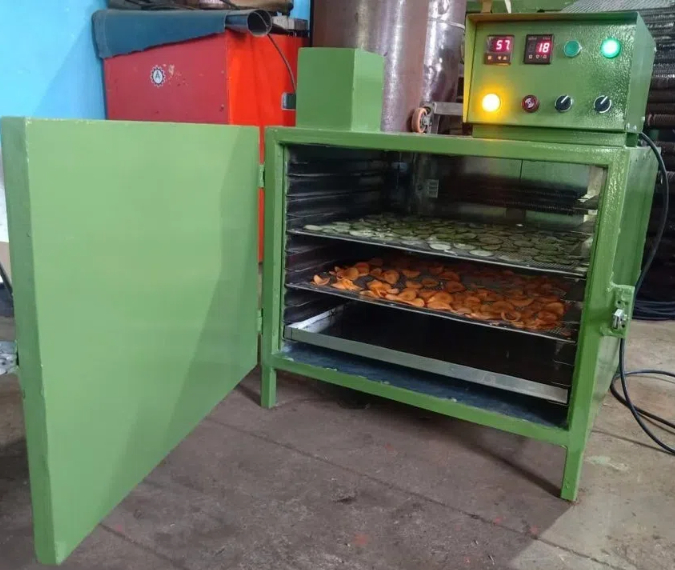
Frequently Asked Questions
1. What are the main advantages of using industrial dryer machines for fruit and vegetable processing?
Answer: Industrial dryer machines offer several key advantages, including extended shelf life of produce, reduced food waste, retention of nutritional value, flavor concentration, and the ability to provide year-round availability of seasonal fruits and vegetables.
2. How do modern dryer machines ensure consistent quality in dried fruits and vegetables?
Answer: Modern dryer machines use advanced control systems that precisely manage temperature, humidity, and airflow throughout the drying process. Some machines even incorporate artificial intelligence to optimize settings based on previous batches, ensuring consistent quality across different types of produce.
3. What types of dryer machines are commonly used in fruit drying vegetable factories?
Answer: Common types include conveyor belt dryers for continuous large-scale production, cabinet dryers for smaller batches, freeze dryers for high-value products, and spray dryers for creating fruit and vegetable powders.
4. How has energy efficiency improved in modern fruit and vegetable dryer machines?
Answer: Energy efficiency has improved through the implementation of heat recovery systems, better insulation, and more precise control mechanisms. Some machines also incorporate renewable energy sources and smart systems to optimize energy use.
5. What are some emerging trends in fruit and vegetable drying technology?
Answer: Emerging trends include the integration of dryer machines into smart factory systems, development of more sustainable drying practices, research into novel drying techniques like microwave-vacuum and ultrasound-assisted drying, and the creation of more flexible and customizable drying solutions.












